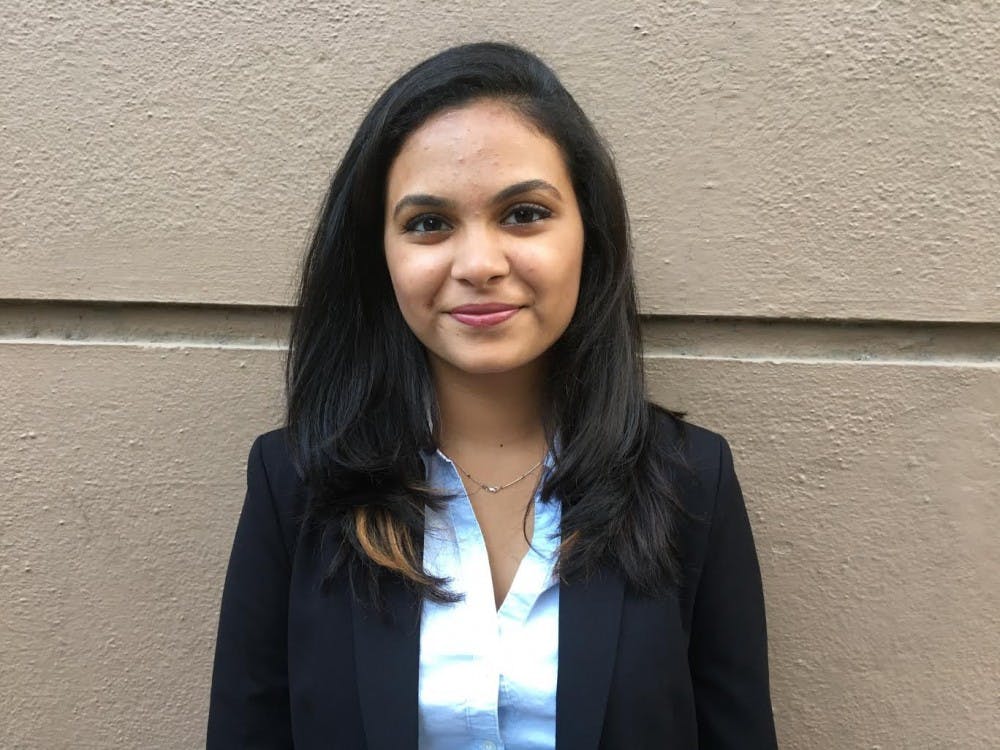One of the many assets that universities in the U.S have to offer is the ability to pick and choose exactly what you want to study. The curriculum is designed, or rather marketed, in a way that promises students that they don’t have to know what they are doing and have the luxury of changing their major even as late as sophomore year. For example, AU requires that students complete general education courses before selecting a major. Many majors are also small enough or overlap with other courses of study, granting students leeway to explore their interests.
Unfortunately, however, these naive explorations do not always end with a pot of gold, but rather, as in my case, a grade point average that is much below what I thought I would have and a misrepresentation of my academic abilities and reputation as a student.
When I decided I wanted to major in journalism, it was largely fueled by the fact that I knew, if there was one thing in this world I was good at, it was writing. When I said that my first semester of college, it sounded like a humble brag. Now, as I enter my junior year, I am beginning to realize that I might just be a one-trick pony. I originally wanted to double major in economics, a subject I was passionate about and understood. Having taken the subject in high school, I confidently registered for microeconomics, knowing that it would be an easy A. The first exam did not go well, which left me confused. I decided to read the textbook diligently and went over the exam material with my peers. I walked out of the second exam with a smile on my face—a short-lived smile on my face. Although only a miracle would be able to change my final grade, I did everything I could to study for my final exam. I used AU’s freshman forgiveness policy for microeconomics, vowing to myself that I would pick my classes and professors more wisely and not make a stupid mistake that would affect my GPA again.
Except now, I was faced with a dilemma. What would my second major or minor be? I was a sophomore now, yet I didn’t know exactly what I wanted to study. That is, until I took a business class to fulfill a general education credit and realized that this was something I might want to pursue. I researched AU’s business degree, concluding that this seemed like something I would really enjoy. I decided to take up a minor in business, something that would give me a broad overview of the business world and a potential backup plan. I also realized I had enough space in my schedule for another minor (but not a major) and decided that international service would probably compliment my actual major the best.
I was excited to finally have my majors and minors and life together. I would have a diverse set of classes. It would be the exposure that journalism students need to make it, right?
That is, if you’re good at the subjects. My business minor required I take basic statistics and financial accounting. Both were math-based and had devastating results on my GPA. It seemed impossible to juggle all my classes, extracurriculars and social life when these two classes alone seemed like they were akin to carrying a 15-credit workload. I found myself crumbling under the pressure.
The very thing that made the American college system so desirable and interesting left me with a weak GPA.
With all the academic freedom that the American higher education system provides, we do not know what to do with all it. We often do not know where to go for help and advice. Being in a new community means that you are the only one who really knows what your strengths and weaknesses are, at least while you’re a freshman. I was bad at math and I knew it, but I still took a chance and overestimated myself. I was in denial about lacking economic talent so I retook the class, eventually taking even more economics classes.
While academic advisors are at our disposal, they are only trained to know their particular school well and don’t really know what to tell students about other subjects. In my experience, it creates a sharp divide between the two majors that I would ideally like to meld together. That being said, I think that it is imperative for schools to create solutions to this issue. For example, schools could create programs where students can take quizzes or read over a basic syllabus before signing up for a class. Academic Advisors should be able to help students get a better grasp of courses and provide a better explanation of what a skills students’ need to excel. Furthermore, students should be allowed to drop a class when they please, without negative consequences like a “W” on their transcript-- a system that universities like the University of California, Los Angeles have. For me, my issue was simply with figuring out what I wanted to do other than my main degree. Students who don’t know what they want to major in could spend several semesters just trying out various classes and like me, find out the hard way that they aren’t cut out for some subjects, or they might spend too long testing different classes and end up with no space for failure. There is no simple solution for this problem, but guidance and a better way to try out classes would help students who are facing similar dilemmas.
sloganathan@theeagleonline.com





